-
 bitcoin
bitcoin $109523.663807 USD
-0.13% -
 ethereum
ethereum $4019.526508 USD
2.06% -
 tether
tether $1.000482 USD
0.00% -
 xrp
xrp $2.776815 USD
0.18% -
 bnb
bnb $958.942396 USD
0.12% -
 solana
solana $204.294698 USD
3.84% -
 usd-coin
usd-coin $0.999693 USD
0.00% -
 dogecoin
dogecoin $0.232115 USD
2.09% -
 tron
tron $0.338028 USD
0.84% -
 cardano
cardano $0.790920 USD
1.50% -
 hyperliquid
hyperliquid $44.871443 USD
5.60% -
 ethena-usde
ethena-usde $1.000322 USD
0.04% -
 chainlink
chainlink $21.034165 USD
2.60% -
 avalanche
avalanche $28.794831 USD
-0.54% -
 stellar
stellar $0.360466 USD
1.24%
What is the difference between a Wallet Address and a Contract Address?
A wallet address, controlled by a private key, allows users to send and receive crypto, while a contract address, governed by code, executes predefined functions when interacted with on the blockchain.
Sep 12, 2025 at 09:19 pm

Understanding Wallet Addresses in the Cryptocurrency Ecosystem
1. A wallet address is a unique identifier generated from a user's public key through cryptographic hashing algorithms. It serves as a destination for receiving digital assets such as Bitcoin, Ethereum, or other tokens. Each wallet address is tied directly to a private key, which grants the owner exclusive control over the funds stored at that address.
2. Wallet addresses are typically associated with individual users or entities managing their own funds. They can initiate transactions, sign messages, and interact with decentralized applications. Most wallet addresses begin with prefixes like '0x' on Ethereum or 'bc1' on Bitcoin, depending on the network and format.
3. These addresses are designed for simplicity and security, allowing users to share them publicly without compromising their private keys. However, once a transaction is sent to a wallet address, reversing it is impossible, emphasizing the importance of accuracy during transfers.
4. Wallet addresses support both inbound and outbound transactions. When a user sends cryptocurrency, they use their private key to authorize the transfer from their wallet address to another address—whether it belongs to another wallet or a contract.
5. Most cryptocurrency wallets, such as MetaMask or Ledger, generate and manage wallet addresses automatically, abstracting the complexity of public-key cryptography from the average user.
The Role and Function of Contract Addresses
1. A contract address is a special type of address created when a smart contract is deployed on a blockchain network, particularly on platforms like Ethereum. Unlike wallet addresses, contract addresses are not derived from a private key but are calculated based on the deploying wallet’s address and the number of transactions (nonce) it has sent.
2. Once deployed, a contract address acts as a permanent endpoint for interacting with the logic embedded in the smart contract. It can receive and hold funds, execute code, and trigger functions based on predefined conditions. Users and other contracts can call these functions by sending transactions to the contract address.
3. Contract addresses cannot initiate transactions on their own. They only respond to incoming transactions or function calls. This means they are passive entities that operate strictly according to their programmed rules.
4. Many decentralized finance (DeFi) protocols, NFT marketplaces, and token systems operate through contract addresses. For example, when a user swaps tokens on Uniswap, they are interacting with a contract address that manages liquidity pools and executes trades.
5. The transparency of blockchain allows anyone to inspect the code behind a contract address, provided it has been verified on platforms like Etherscan. This enables trustless verification of a contract’s behavior before interaction.
Key Differences Between Wallet and Contract Addresses
1. Wallet addresses are controlled by private keys, while contract addresses are governed by code. This fundamental distinction determines how each address behaves and who or what can trigger actions from it.
2. Only wallet addresses can independently initiate transactions. Contract addresses must wait for external input—usually from a wallet—to execute any function or transfer funds.
3. Wallet addresses are created when a user sets up a wallet, whereas contract addresses come into existence only after a deployment transaction is confirmed on the blockchain.
4. Contract addresses often host complex logic, such as token issuance, staking mechanisms, or automated market making. Wallet addresses do not contain executable code and serve purely as storage and transaction endpoints.
5. While both types of addresses can hold tokens and ETH, the way they handle these assets differs significantly. A contract address may enforce rules on how funds are withdrawn, while a wallet address allows the owner full discretion over spending.
Frequently Asked Questions
Can a contract address own tokens?
Yes, a contract address can hold tokens just like a wallet address. Many DeFi contracts, such as yield farms or NFT marketplaces, store user deposits or manage token balances within their contract address.
Is it safe to send funds to a contract address?
Sending funds to a contract address is safe only if the contract is well-audited and trusted. Malicious contracts may trap or steal funds, especially if they contain hidden functions. Always verify the contract’s source code and community reputation before interacting.
How can I tell if an address is a wallet or a contract?
On block explorers like Etherscan, you can check the address details. If the address has associated contract code, it is a contract address. If it shows only transaction history without code, it is likely a wallet address.
Can a contract address receive ETH or only tokens?
A contract address can receive both ETH and tokens. It processes ETH transfers through payable functions and handles tokens via standard interfaces like ERC-20 or ERC-721, depending on the contract’s design.
Disclaimer:info@kdj.com
The information provided is not trading advice. kdj.com does not assume any responsibility for any investments made based on the information provided in this article. Cryptocurrencies are highly volatile and it is highly recommended that you invest with caution after thorough research!
If you believe that the content used on this website infringes your copyright, please contact us immediately (info@kdj.com) and we will delete it promptly.
- Token Costs, AI Scaling, and Computing Power: The Quest for Efficiency
- 2025-09-27 14:25:15
- Qwen3Guard: A Leap Towards Multilingual AI Safety
- 2025-09-27 14:25:15
- Rare 1p Coin Could Fetch £200,000: Are You Holding a Fortune?
- 2025-09-27 12:25:13
- MAGACOIN Finance: Buzz, Risks, and the Altcoin Stampede
- 2025-09-27 12:25:13
- Crypto Wallets & Utility Tokens: What's the Hype?
- 2025-09-27 12:30:02
- Coin Memes, Pumpfun, and ChatGPT: Navigating the Wild West of Crypto
- 2025-09-27 14:30:01
Related knowledge
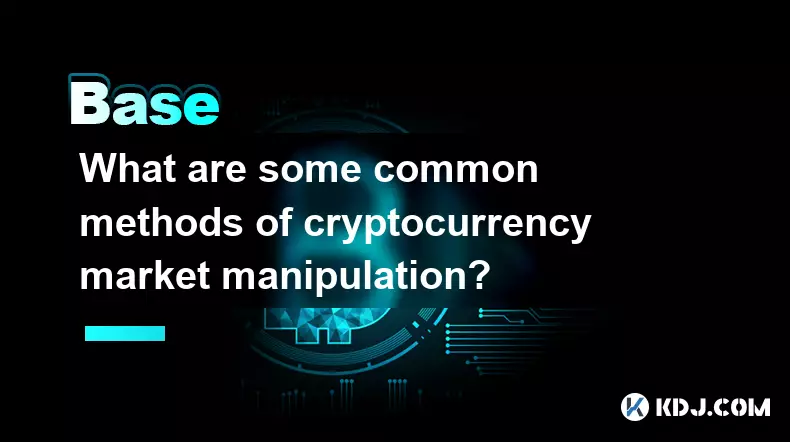
What are some common methods of cryptocurrency market manipulation?
Sep 27,2025 at 02:55am
Wash Trading and Its Impact on Market Perception1. Wash trading involves an individual or entity simultaneously buying and selling the same cryptocurr...
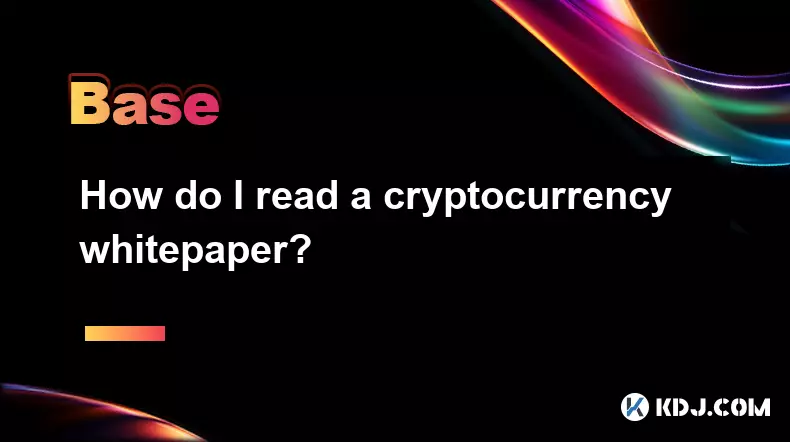
How do I read a cryptocurrency whitepaper?
Sep 27,2025 at 05:54am
Understanding the Structure of a Cryptocurrency Whitepaper1. Begin by identifying the executive summary, which outlines the project’s core vision and ...
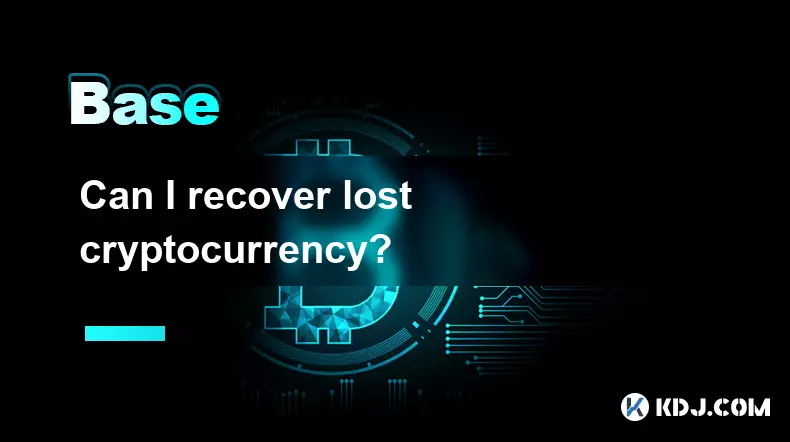
Can I recover lost cryptocurrency?
Sep 25,2025 at 08:18am
Understanding the Nature of Cryptocurrency Loss1. Cryptocurrency operates on decentralized networks, meaning there is no central authority to reverse ...
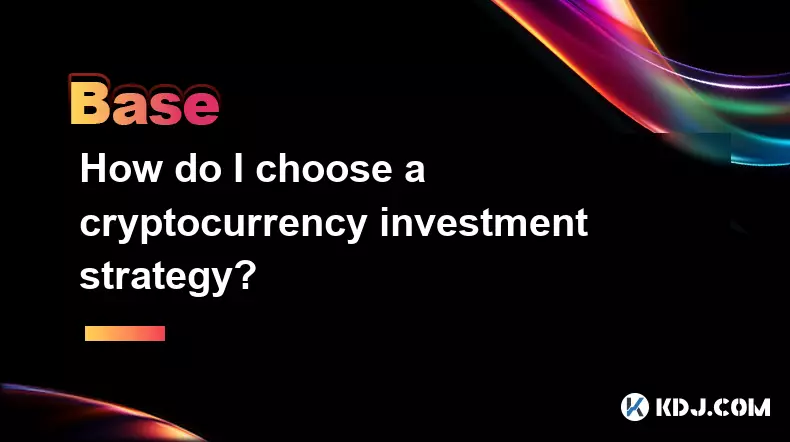
How do I choose a cryptocurrency investment strategy?
Sep 27,2025 at 03:55pm
Understanding Risk Tolerance in Crypto Investing1. Assessing personal risk tolerance is a foundational step when entering the cryptocurrency market. V...
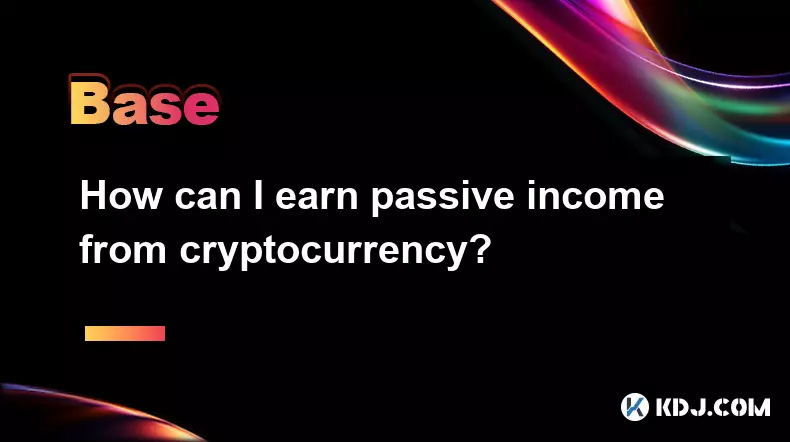
How can I earn passive income from cryptocurrency?
Sep 23,2025 at 10:18am
Staking Cryptocurrencies for Regular Returns1. Many blockchain networks operate on a proof-of-stake (PoS) consensus mechanism, allowing users to earn ...

What are gas fees in cryptocurrency transactions?
Sep 26,2025 at 02:00am
Understanding Gas Fees in Blockchain Transactions1. Gas fees are payments made by users to compensate for the computing energy required to process and...

What are some common methods of cryptocurrency market manipulation?
Sep 27,2025 at 02:55am
Wash Trading and Its Impact on Market Perception1. Wash trading involves an individual or entity simultaneously buying and selling the same cryptocurr...

How do I read a cryptocurrency whitepaper?
Sep 27,2025 at 05:54am
Understanding the Structure of a Cryptocurrency Whitepaper1. Begin by identifying the executive summary, which outlines the project’s core vision and ...

Can I recover lost cryptocurrency?
Sep 25,2025 at 08:18am
Understanding the Nature of Cryptocurrency Loss1. Cryptocurrency operates on decentralized networks, meaning there is no central authority to reverse ...

How do I choose a cryptocurrency investment strategy?
Sep 27,2025 at 03:55pm
Understanding Risk Tolerance in Crypto Investing1. Assessing personal risk tolerance is a foundational step when entering the cryptocurrency market. V...

How can I earn passive income from cryptocurrency?
Sep 23,2025 at 10:18am
Staking Cryptocurrencies for Regular Returns1. Many blockchain networks operate on a proof-of-stake (PoS) consensus mechanism, allowing users to earn ...

What are gas fees in cryptocurrency transactions?
Sep 26,2025 at 02:00am
Understanding Gas Fees in Blockchain Transactions1. Gas fees are payments made by users to compensate for the computing energy required to process and...
See all articles










































































